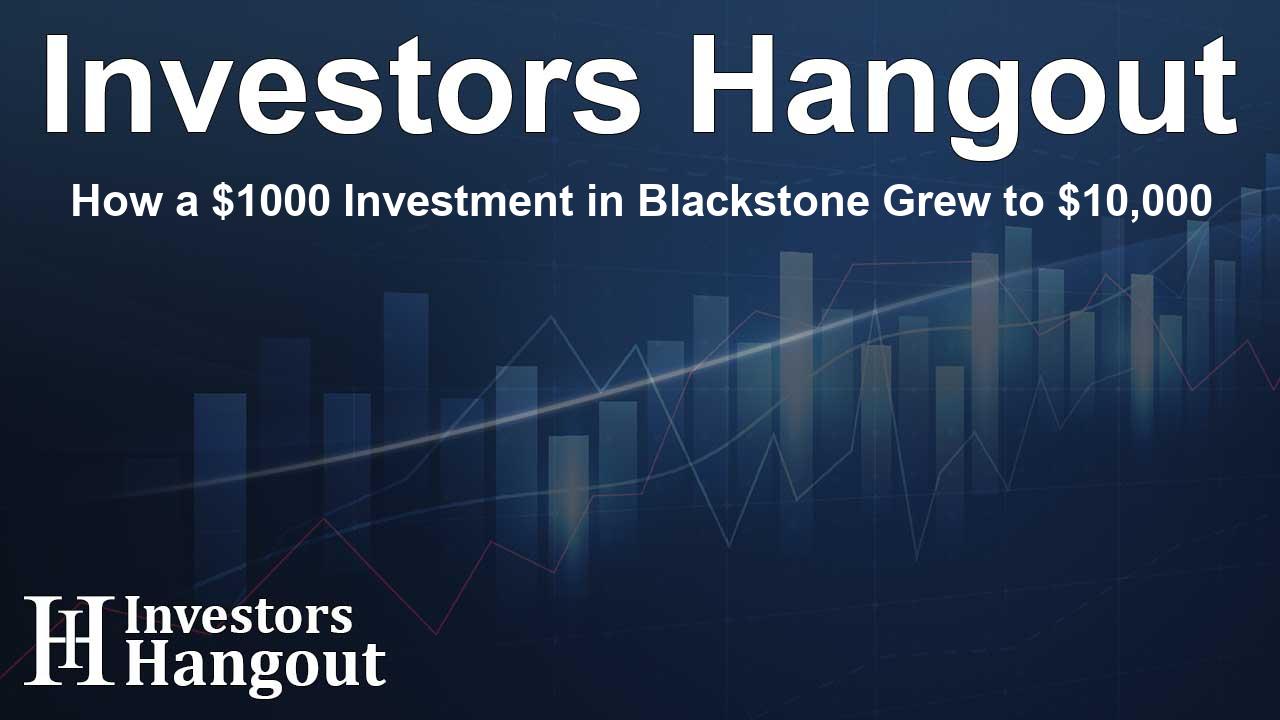How a $1000 Investment in Blackstone Grew to $10,000

Blackstone (BX): 15 Years of Steady, Standout Growth
Long-term investing pays when you stick with quality. Blackstone (BX) is a clear case. Over the past 15 years, the firm has delivered eye?catching results, rewarding patient shareholders year after year. Today, Blackstone’s market capitalization sits at $109.25 billion—an indicator of scale and staying power in a competitive financial landscape.
What $1,000 Then Looks Like Now
Picture this: you put $1,000 into Blackstone 15 years ago and simply held on. That stake would now be worth $10,165.12. It’s a straightforward example of letting time and discipline do the heavy lifting. For context, the latest stock price for BX is $142.21.
Compounding, Plain and Simple
The driver here is compounding. Over 15 years, Blackstone averaged a 16.34% annual return, outpacing the market by 4.85%. Reinvesting earnings—and giving them time to snowball—can materially change the size of an account. Small gains stack, then those stacks start earning, too. It’s not flashy; it’s just steady math.
What Helps Blackstone Stand Out
Blackstone’s appeal comes from how it allocates capital and manages risk. The firm invests across a range of areas, and that diversification helps smooth the ride when markets get choppy. Paired with a strategic approach to asset management, it’s a setup many long-term investors find attractive because it balances opportunity with resilience.
Looking Ahead
Looking forward, Blackstone remains a name worth watching. With a long record of growth, it’s reasonable to think it could continue to deliver strong results over time. The key, as ever, is maintaining a long-term perspective—letting compounding work and avoiding the noise. This isn’t advice, just a reminder that patience has a way of doing the heavy lifting.
Frequently Asked Questions
How much would a $1000 investment in Blackstone be worth today?
If you invested $1,000 in Blackstone 15 years ago and held, it would be worth about $10,165.12 today—an illustration of what time and compounding can do.
What is Blackstone's average annual return over the last 15 years?
Blackstone’s average annual return over the past 15 years is 16.34%, reflecting consistent performance over a long stretch.
How did Blackstone outperform the market?
Over that span, Blackstone outperformed the market by 4.85%. Consistent compounding and a disciplined approach to reinvesting gains helped close the gap—and then widen it.
Why do some investors favor Blackstone for the long term?
Many point to Blackstone’s diversified investments and strategic asset management. Diversification can cushion volatility, which tends to matter most when you’re investing for the long haul.
What does a market capitalization of $109.25 billion tell me?
A market cap of $109.25 billion signals size and significance within the financial sector. It doesn’t guarantee future results, but it does reflect scale and market confidence in the business.
About The Author
Contact Olivia Taylor privately here. Or send an email with ATTN: Olivia Taylor as the subject to contact@investorshangout.com.
About Investors Hangout
Investors Hangout is a leading online stock forum for financial discussion and learning, offering a wide range of free tools and resources. It draws in traders of all levels, who exchange market knowledge, investigate trading tactics, and keep an eye on industry developments in real time. Featuring financial articles, stock message boards, quotes, charts, company profiles, and live news updates. Through cooperative learning and a wealth of informational resources, it helps users from novices creating their first portfolios to experts honing their techniques. Join Investors Hangout today: https://investorshangout.com/
The content of this article is based on factual, publicly available information and does not represent legal, financial, or investment advice. Investors Hangout does not offer financial advice, and the author is not a licensed financial advisor. Consult a qualified advisor before making any financial or investment decisions based on this article. This article should not be considered advice to purchase, sell, or hold any securities or other investments. If any of the material provided here is inaccurate, please contact us for corrections.
